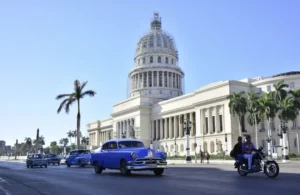Cuba is currently grappling with a severe energy crisis, as detailed in a revealing report by the NGO Cuba Siglo 21.
This crisis, years in the making due to neglected maintenance, has reached a critical point where the island’s outdated power infrastructure needs an extensive and costly overhaul.
Estimated to require between six and ten years and an investment of $10 billion, the task is daunting but necessary for the nation’s future.
The report, named “Cuba’s Collapse and Power Outage,” uncovers the depth of Cuba’s energy issues.

Unión Eléctrica (UNE), Cuba‘s electricity provider, currently operates with a significant capacity deficit, offering 2,097 megawatts (MW) against a demand of 3,000 MW.
One of the core issues is Cuba’s reliance on imports for its energy supply, stemming from a lack of domestic oil or natural gas resources.
This dependence is a vulnerability that the country can no longer afford to overlook.
Furthermore, attempts to pivot towards alternative energy sources have not yet borne fruit.
Ambitious goals, like reaching a 37% renewable energy share by 2030, seem unattainable due to investment and planning shortcomings.
Fuel Price Spike and Its Implications
The recent spike in fuel prices, while intended to address economic challenges, is unlikely to mitigate the energy crisis.
Instead, it risks aggravating inflation, distorting market prices and wages, and failing to stabilize Cuba’s economy.
The report posits that the only sustainable path forward involves dismantling the existing state-controlled economic model in favor of embracing a free market system.
This transition, while challenging, is deemed essential for energizing Cuba’s economy and ensuring the nation’s energy security.
Cuba’s energy plight is a clarion call for reform. The current trajectory is unsustainable, and without significant changes, the country faces an uncertain future.
Transitioning to a more flexible, market-driven economy and investing in sustainable energy infrastructure are crucial steps toward resilience and prosperity.

